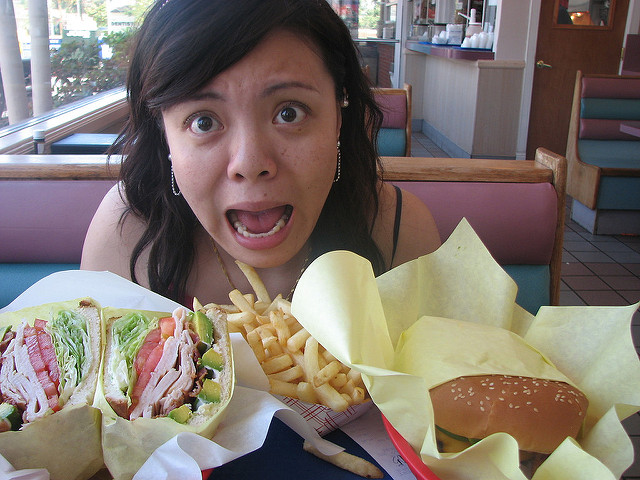
“If you do what you always did, you will get what you always got.” ~ Albert Einstein
~
I gave up on New Year’s resolutions years ago.
Not because I didn’t care, and not because I didn’t have things I wanted to address, but because I realized that the efforts I exhausted toward realizing my resolutions didn’t lead anywhere. I tried sticky notes, reminders, and even letters to myself. The sticky notes stuck, but not the resolutions.
I’ve come to realize that my struggles to change, to improve, to fix what needed fixing all centered around me making the effort to stop doing something or to start doing something. “Making effort” is the key phrase here. I’d find all sorts of ways to pressure, shame, and coax myself into a different behavior, a different way of being, attempting to move toward my idea of what or who I should be.
What I discovered was that this was exhausting, deflating, and not at all sustainable.
As soon as I eased the pressure, the old returned—often, without me even noticing.
All my effort-making, my pressuring, and the heaps of shame I piled onto myself supported the idea that somehow, this would help me to become different, to change.
But all the while, I was inadvertently reinforcing exactly what it was that I wanted to change. As Carl Jung so brilliantly said, “What you resist not only persists, but will grow in size.” Sigh.
Over the years I’ve become fascinated with this. If making effort, pressuring, and shaming myself won’t create lasting change, what can?
It turns out that it’s easier than it looks.
What’s emerged for me is what I call a more compassionate approach to change. And, to my surprise, it’s stickier, much more sustainable, and takes a lot less effort.
Recent studies in and around psycho-neurobiology show us that our brains rewire constantly. This is great news! Think of your system as a continuum. You are operating somewhere between reactivity and creativity. Where you are operating from on this continuum changes constantly, depending on the context, the perceived safety of the situation, the lighting, your mood, that of those around you, how well fed you are, the temperature, and many other variables.
On the reactivity end of the continuum, we operate on autopilot, seeking safety and survival. We react based on what our system “knows to be true.” This is a compilation of the natural safety features of our system and the adaptations we’ve created as we’ve grown up and navigated life. I call this our “inner lizard” because it is partially rooted in the most ancient, reptilian part of our brain. Something happens; we react. It’s automatic.
It’s not a question of whether our inner lizard is operating; it’s operating all the time. It’s a question of how aware we are of what is happening inside us, and where we are on the continuum at any given moment.
On the other end of the spectrum, the creative end, we’re fully operating out of our pre-frontal cortex—the part of our brain that supports relational capacities, innovation, executive functions, and all the other capacities I call “full-on human.” Not because we’re not human when we’re more reactive, but because we’re operating out of our highest capacities.
What, you might ask, does this have to do with New Year’s resolutions and change?
Everything. Think about it:
Let’s say my New Year’s resolution is, for instance, to have more patience with my irritating co-worker. I resolve to be nicer, to be more compassionate, and to not get so reactive with him or her. I can see that my reactivity is not helpful to my co-worker or myself. It’s a great New Year’s resolution!
So, I go to work and I try really hard to not feel irritated. I count to 10, I breathe, I take long walks, and I squeeze my toes or my fists to release the tension. I get a stress ball. I put a bowl of chocolate on my desk. I even stop drinking coffee. I start a stress journal and write about what I feel grateful for.
All of these are great things to do. They all support my system and me. And, I’m making effort—a lot of it. I am working very hard to stop feeling irritated with my co-worker. After a week, I start drinking my coffee again. I’ve added shame and self-judgment because I realize that I’m just as irritated with my co-worker as I was before my resolutions. Why can’t I be better than this?
I’ve just done exactly what Jung pointed to. By resisting it, I’ve actually watered and grown my irritation. And, I’ve added self-condemnation.
A more compassionate approach to change:
Let’s try this scenario again, with a different approach.
I’m really irritated with my co-worker. I’ve been getting to know my inner lizard and am starting to recognize that when I feel irritated, there is something that is not working for me. My New Year’s resolution is to take the time to get a better understanding of what’s not working for me so that I can learn what I need.
I pay attention. I breathe, I take long walks, and I do something different—I take a few moments to evaluate what’s happening and see it for what it is. I’m not a bad person. My responses are simply my reptilian brain doing its best to keep me safe and secure. When I can come from this perspective, I’m engaging my pre-frontal cortex: the end of the continuum that includes curiosity and innovation, and a lot more. I’m curious. I look, I wonder, and I pay attention to when I’m irritated and when I’m not. I start to notice what is happening just before I get irritated. What’s going on here? I stop paying so much attention to what is happening with my co-worker, and more attention to what is happening inside myself.
Maybe I begin to notice that I’m working really hard to make things work for me that really don’t work. Maybe I notice that I say “yes” when I really mean “no.” Maybe I notice that some things are harder for me, and I get irritated with my co-worker when those same things are easy for him or her.
Slowly, I notice that my irritation is waning. I’m no longer blaming my co-worker. I’m noticing that my capacity to find creative solutions is more frequently showing up. I’m happier and feeling freer. When I do feel irritated, I quickly realize what it is that I’m not addressing. And I’m finding it easier to address what needs attention.
I’m getting to know my inner lizard and I’m learning to train my brain. I’m using psycho-neurobiological aikido to build new pathways and to bring myself more into awareness. I’m no longer trying to not feel irritated. I’m no longer resisting. I’m listening to myself and relaxing.
I begin to notice: I’ve changed.
~
Author: Martha Hamilton
Image: Micah Sittig/Flickr
Editor: Catherine Monkman
Copy Editor: Callie Rushton
Social Editor: Callie Rushton






Read 0 comments and reply